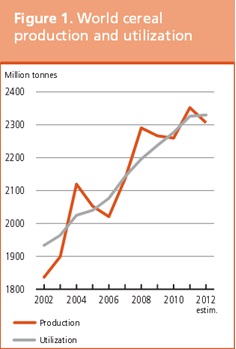IEEE Spectrum, the journal of the world's largest professional association for the advancement of technology, has a new special report dedicated to debunking the "surging current of alarm that we’re headed for a food doomsday by 2050—that the world’s food-producing capacity will crash before population peaks at 10 billion." The editors reply: "Don’t you believe it! Smart technology and better management policies will let us feed the hungry hordes to midcentury and beyond." "We are rich in food beyond all prior dreams, and yet there’s a swelling chorus of worry that we are headed for catastrophe, as population growth and climate change threaten food security. That anxiety is misplaced."

SPECIAL REPORT: THE AGE OF PLENTY
There’s a surging current of alarm that we’re headed for a food doomsday by 2050—that the world’s food-producing capacity will crash before population peaks at 10 billion. Don’t you believe it! Smart technology and better management policies will let us feed the hungry hordes to midcentury and beyond.Introduction
We think of things like nuclear submarines and luxury cars as emblems of technological sophistication. But turn your attention now to an ordinary local supermarket in any developed country. It probably stocks 15 000 to 50 000 different products, including items like organic red quinoa and Tahitian vanilla beans.
In the produce section are about 100 different kinds of fruits and a like number of vegetables. The packaged food section has snacks that are scientifically formulated to trigger addictive responses while retaining their freshness for months, if not years. And it’s all ridiculously cheap: A typical family in a developed country spends less than 15 percent of its disposable income on food.
We are rich in food beyond all prior dreams, and yet there’s a swelling chorus of worry that we are headed for catastrophe, as population growth and climate change threaten food security.
That anxiety is misplaced. It’s true that we need new technologies to grow more and better food using fewer chemicals and less land, water, energy, labor, and capital, while causing less damage to the environment. But as we show in this issue, it’s also a fact that those technologies are now being developed, tested, or applied all over the world. —The Editors
Scroll down to browse more than 20 stories that examine the link between technology and food, including views from experts like Keith Fuglie, Nathan Myhrvold and Pablos Holman, and Jeffrey Lipton and Hod Lipson.
Or, jump directly to a particular section of the report:
Section I: Growing It
No comments:
Post a Comment